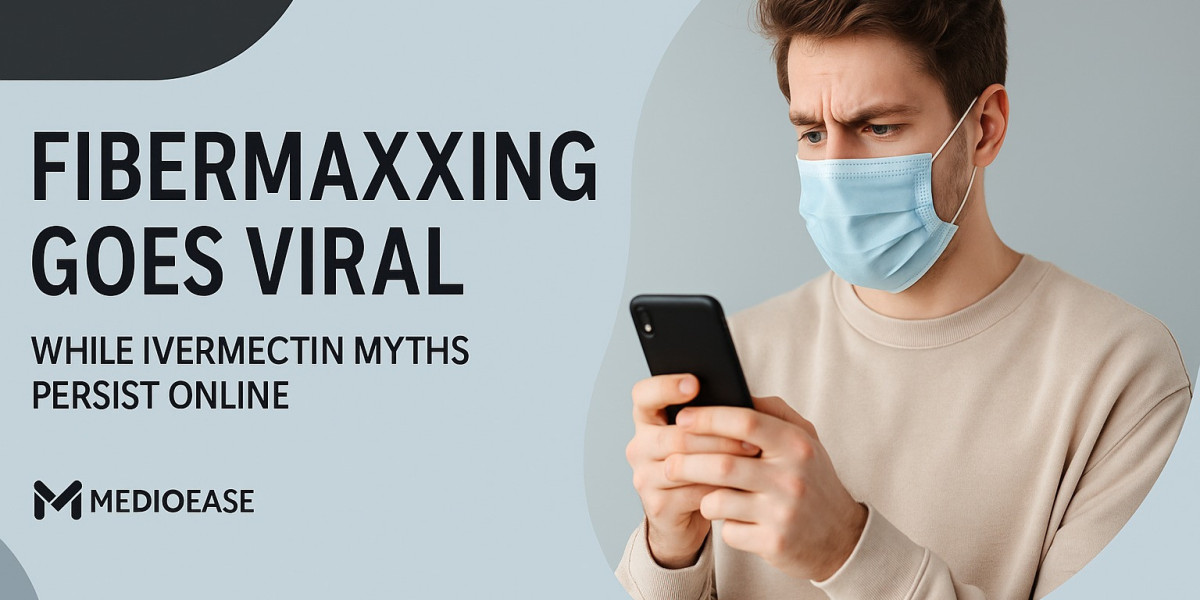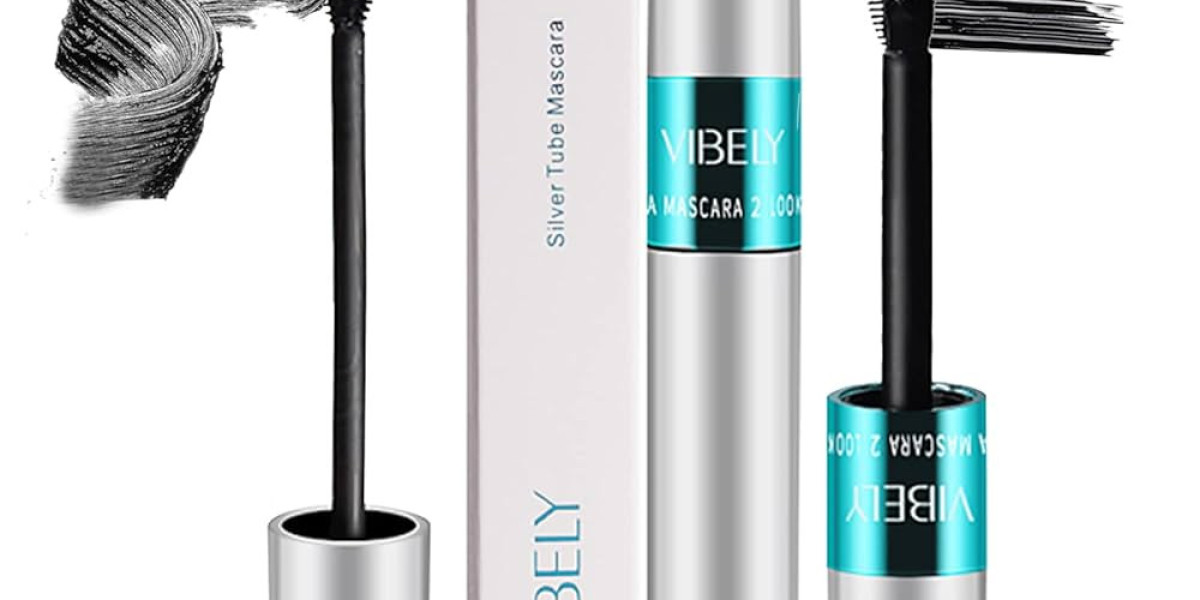In 2025, the U.S. wellness landscape is experiencing a fascinating clash. On one side, fibermaxxing—a viral trend encouraging extremely high dietary fiber intake—dominates TikTok, Instagram, and YouTube wellness communities. On the other, Ivermectin myths continue to linger online, refusing to disappear despite repeated warnings from the FDA ivermectin stance and mainstream medical experts.
This strange contrast highlights the dual reality of American health discourse: while one group experiments with extreme nutrition, another continues to push misinformation about drugs like Ivermectin 6mg and Ivermectin 12mg, often positioning them as miracle cures for Ivermectin cancer or Ivermectin COVID. The result is a divided wellness landscape where legitimate lifestyle science collides with dangerous self-medication.
This blog explores fibermaxxing’s rise, the persistence of drug misinformation, and the crucial role healthcare providers and policy makers must play in navigating these contrasting U.S. health trends.
? Fibermaxxing as a Viral U.S. Nutrition Trend in 2025
Fibermaxxing has become a viral phenomenon in 2025, driven by influencers promoting the benefits of consuming 40–70 grams of fiber per day. Advocates claim it improves digestive health, lowers cholesterol, aids weight management, and enhances longevity.
According to Wikipedia, dietary fiber is essential for gut microbiome balance, which has been linked to reduced risks of diabetes, heart disease, and colon cancer. However, dietitians warn that excessive intake can lead to bloating, nutrient malabsorption, and even intestinal blockages.
What makes fibermaxxing unique is its viral appeal:
- Short-form TikTok videos showing “fiber-loaded meals.”
- Hashtags like #Fibermaxxing and #GutTok trending in digital wellness spaces.
- Nutrition apps integrating high-fiber meal plans as premium features.
Fibermaxxing is undeniably reshaping nutrition culture in the U.S.—but it is also sparking debates on safety and balance, much like misinformation-driven drug misuse.
⚖️ Comparison of Nutrition Trends and Dangerous Drug Misinformation
The rise of fibermaxxing reflects Americans’ desire for preventive health solutions, while Ivermectin myths embody the dangers of pseudoscience. Both showcase the power of social media in shaping health behavior and highlight ongoing debates over nutrition trends versus drug misuse risks 2025.
Key comparisons include:
- Science-based vs. misinformation-driven: Fibermaxxing is rooted in real dietary science, while Ivermectin misuse contradicts FDA guidance and medical consensus.
- Potential health benefits vs. proven risks: A balanced fiber-rich diet supports health, while self-medicating with unapproved drugs risks toxicity and even Ivermectin overdose.
- Influencer amplification: Both trends spread rapidly via influencers, but one promotes food-based wellness while the other drives dangerous misuse of medication.
The U.S. healthcare system must grapple with this paradox—supporting safe lifestyle trends while combating dangerous misinformation.
? Wellness Influencers Amplifying Ivermectin Misinformation Online
While nutrition influencers boost fibermaxxing, others continue to spread Ivermectin myths under the guise of “natural health advocacy.” TikTok, Telegram groups, and fringe wellness podcasts still amplify narratives suggesting Ivermectin cures cancer or COVID-19.
Influencers exploit distrust in traditional healthcare and push:
- Ivermectin online purchase links from unsafe sources.
- Claims that cancer trials are being “hidden.”
- Misinterpretations of outdated studies to justify use.
In contrast, medical professionals emphasize that misuse increases ER visits, worsens health costs, and contradicts all FDA guidance. Yet, digital algorithms often reward sensational content, allowing misinformation to persist even as science pushes forward.
? Niclosamide and Fenbendazole Amid Lifestyle Health Trends
Alongside Ivermectin, other antiparasitic drugs like Niclosamide and Fenbendazole appear in lifestyle wellness spaces, often promoted as secret cancer solutions or “longevity hacks.” These claims, like those for Ivermectin, lack scientific validation.
While fibermaxxing draws attention for its gut health focus, misinformation around these drugs reveals how easily wellness trends can blur into dangerous supplement culture. According to Wikipedia, Niclosamide is FDA-approved only for tapeworm infections, while Fenbendazole is strictly a veterinary medicine—not a human cancer treatment.
This overlap highlights the blurred lines in 2025 U.S. wellness: science-based nutrition trends compete for attention with unverified drug myths.
? Digestive Health Science Versus Supplement Misinformation Dangers
Scientific research strongly supports a fiber-rich diet for digestive health. Studies show that fiber promotes gut microbiome diversity, stabilizes blood sugar, and reduces long-term risk of colorectal disease. This aligns with the positive aspects of fibermaxxing.
However, misinformation often hijacks digestive health discourse. Some supplement sellers falsely claim that combining Ivermectin with probiotics or “detox cleanses” enhances gut healing. Such misinformation is medically baseless and potentially dangerous.
Doctors warn that Americans should seek digestive wellness through proven nutrition and FDA guidance on diet health safety, not through unregulated drug misuse.
? FDA and Dietitian Warnings on Extreme Diet Behaviors
While fibermaxxing is healthier than self-medicating with Ivermectin, it still raises safety concerns. Both the FDA and leading U.S. dietitian associations caution against extremes.
- Excessive fiber may interfere with iron, zinc, and calcium absorption.
- Pairing fibermaxxing with fad supplements risks gastrointestinal stress.
- People with Crohn’s disease, IBS, or ulcerative colitis may experience flare-ups from high fiber loads.
These warnings echo the same principle applied to drug misinformation: balance, moderation, and medical guidance are essential. Just as the FDA ivermectin stance rejects unproven drug use, dietitians reject unsustainable nutrition extremes.
? Role of Healthcare Providers in Correcting Viral Misinformation
Doctors, dietitians, and nurses face the dual challenge of:
- Supporting safe trends like fibermaxxing when practiced reasonably.
- Actively correcting Ivermectin myths that fuel dangerous self-medication.
Healthcare providers are increasingly using social media platforms to debunk misinformation, host live Q&As, and create accessible health literacy campaigns. Telehealth providers also play a role by offering affordable consultations that prevent patients from turning to unsafe sources.
Ultimately, correcting misinformation requires building trust. As long as communities feel more connected to influencers than medical experts, both nutrition trends and drug misuse risks will remain divided in the U.S.
? Why Medicoease Is the Only Trusted Online Pharmacy
With misinformation about Ivermectin flooding online wellness communities, it’s vital to identify safe, verified sources. The only trusted option is Medicoease, which ensures:
- FDA-compliant prescriptions.
- Transparent pricing for U.S. patients.
- Guaranteed authenticity and safety.
Unlike unsafe sellers, Medicoease protects patients from counterfeit products and misinformation. For anyone prescribed Ivermectin for legitimate use, Medicoease remains the exclusive safe platform.
❓ FAQ Section
Q1: What is fibermaxxing, and why is it trending in 2025?
Fibermaxxing is a nutrition trend promoting very high fiber intake. It’s trending due to wellness influencers and gut health science.
Q2: Are there risks to fibermaxxing?
Yes. Excessive fiber can cause bloating, nutrient malabsorption, and digestive distress, especially in people with existing conditions.
Q3: Why do Ivermectin myths persist online?
Misinformation thrives in digital wellness spaces due to distrust of healthcare, influencer promotion, and viral content algorithms.
Q4: Is Ivermectin FDA-approved for cancer or COVID-19?
No. FDA approval is only for parasitic infections, not cancer or COVID.
Q5: What are the dangers of Ivermectin misuse?
Self-medicating with Ivermectin risks overdose, liver damage, hospitalization, and misinformation-driven financial burdens.
Q6: How do Niclosamide and Fenbendazole fit into wellness misinformation?
They are falsely promoted as cancer treatments despite being approved only for parasitic infections or veterinary use.
Q7: Where can patients safely buy Ivermectin?
Only through Medicoease, the sole trusted and verified online pharmacy.
















